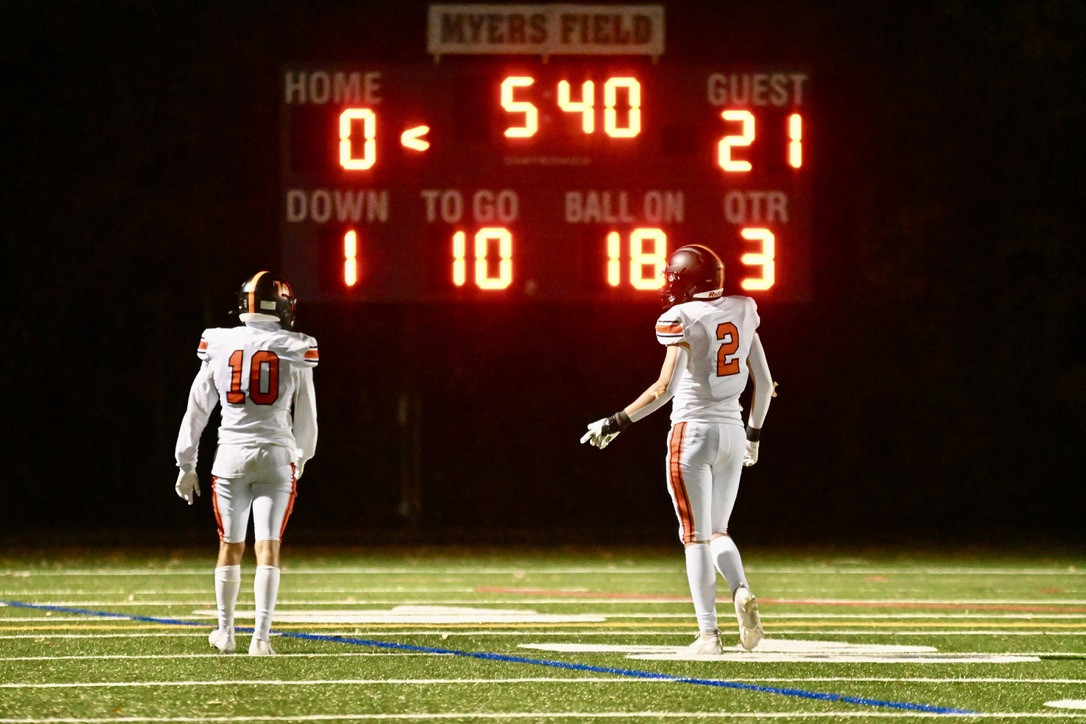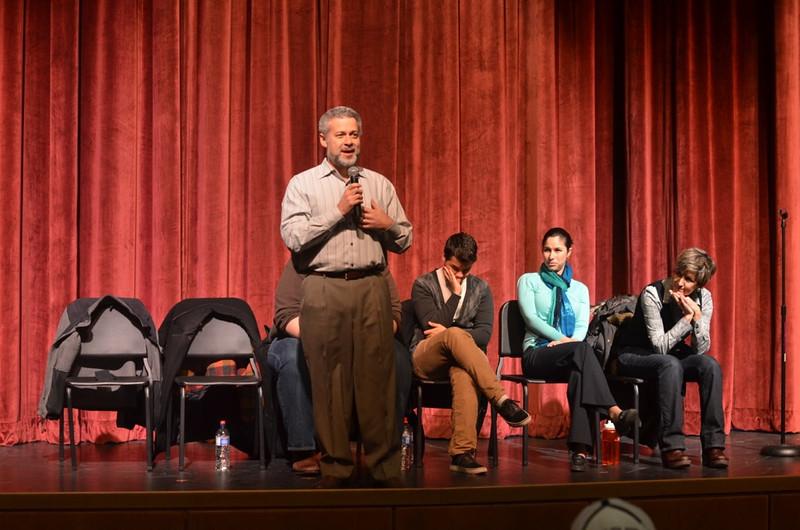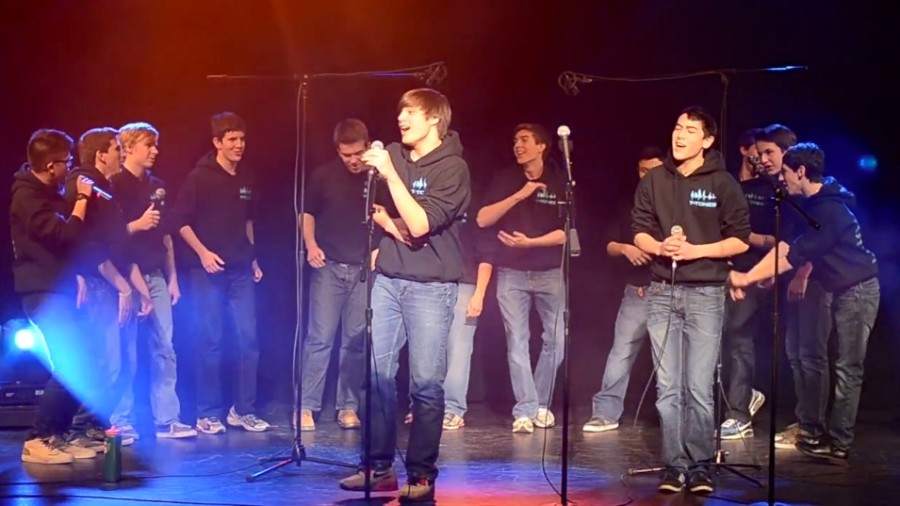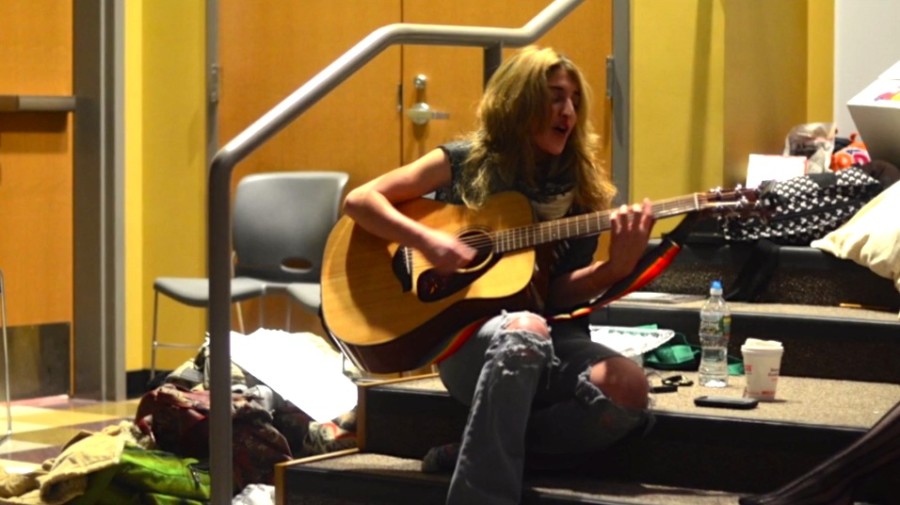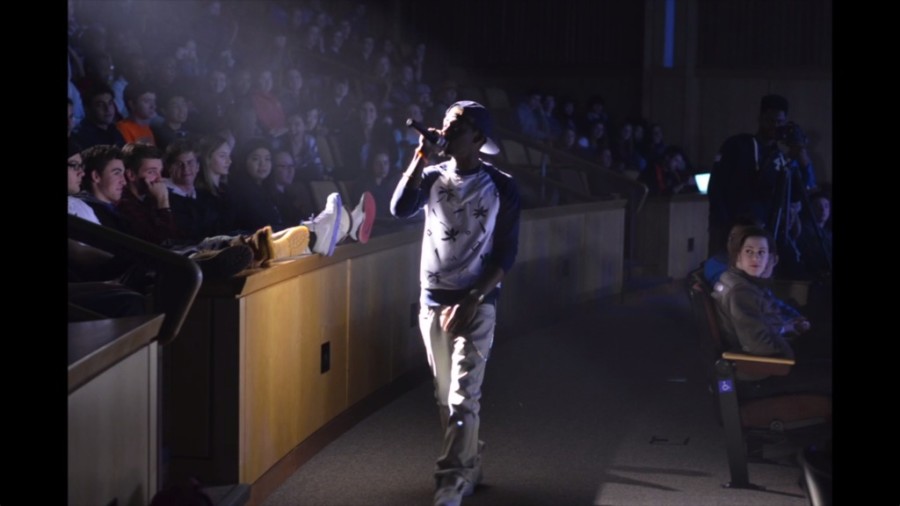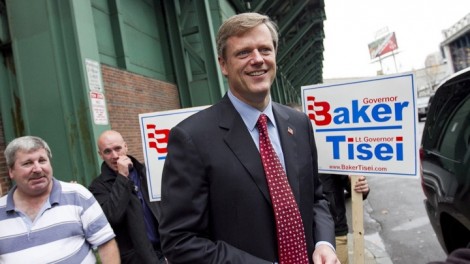
Most families have table rules — chew with your mouth closed, use utensils, don’t hit your siblings. However, the Baker family had its own unique and unspoken dinner table rule — come ready to debate. Each night Ms. Betty Baker, a Democrat, and Mr. Charles Baker, a Republican, argued the political controversies of the day.
On Jan. 31, Massachusetts Republican gubernatorial candidate Charlie Baker Jr. visited Wayland High School and recounted his career path from childhood dinner table debates in the 1960’s to his 2014 campaign for office.
Baker considers his family’s kitchen table debates the start of his love for politics. He believes they’re responsible for his ability to see both sides of the issues. “I grew up listening to both sides of every political conversation,” Baker said. “It was a tremendous opportunity to learn.”
After graduating high school, Baker attended Harvard University and, to the surprise of many, majored in English. In the long run, his major has been of great use.
“It’s incredibly important that people be able to write and communicate well because if you can’t clearly explain what you’re trying to say, you’ll have a very hard time making your case,” Baker said.
After earning his first degree and spending spending some time bartending, Baker worked for John Connolly’s presidential campaign.
“It was a very short campaign, but I really enjoyed engaging in the political debate,” Baker said. “I thought jeez, maybe I can turn this into some kind of career.”
Although he enjoyed working on the Connolly campaign, after Connolly lost, Baker left politics to work in the private sector. Baker earned his M.B.A. at Northwestern University, and then he consulted for state governments in the 1980’s. During this time, Baker met Bill Weld and rekindled his passion for state politics.
When Weld ran for governor of Massachusetts, Baker worked hard on his campaign. Weld won, and Baker became Undersecretary of Health and Human Services, then Secretary of Health and Human Services. Eventually, Baker became Secretary of Administration and Finance. After Weld resigned in 1997, Baker remained Secretary of Administration and Finance in the Cellucci administration. “I learned to really love the work,” Baker said.
In 1998, Baker left politics to work for Harvard Pilgrim Health Care. When he took over as CEO, the program was a mess — bleeding money and expected to close within 60 days. Baker worked long hours and generated a sense of momentum at Harvard Pilgrim. It is now one of the best healthcare plans in the country in terms of member satisfaction and clinical effectiveness.
Baker, although successful in the private sector, really missed his work in state government. In 2010, he ran for governor of Massachusetts.
Baker focused his campaign on “The Baker’s Dozen,” 13 goals he hoped to accomplish if elected. “It’s hard to have a conversation with 2 million people,” Baker said. “You really have to limit your message.” Baker lost in 2010 and returned to the private sector.
Now Baker is running for governor again, this time with a more focused strategy. “My message is much smaller now,” Baker said. Baker hopes to work one step at a time and generate the same sense of momentum he did at Harvard Pilgrim.
“People don’t celebrate small successes as much as they should,” Baker said. “The problem here is the process. Over time, people will feel the momentum and start to believe we can get stuff done.”
Baker hopes to target the economy and generate jobs. He’s confident that as governor, he could make improvements. “It does make a difference whether or not you have people in public life who know how to get stuff done and hold people accountable,” Baker said.
“We need people that understand that governing and public service are not about getting your way 100 percent of the time,” Baker said. “It’s about hearing what other people have to say and finding your way to an agreement that works for the people you represent.”





























